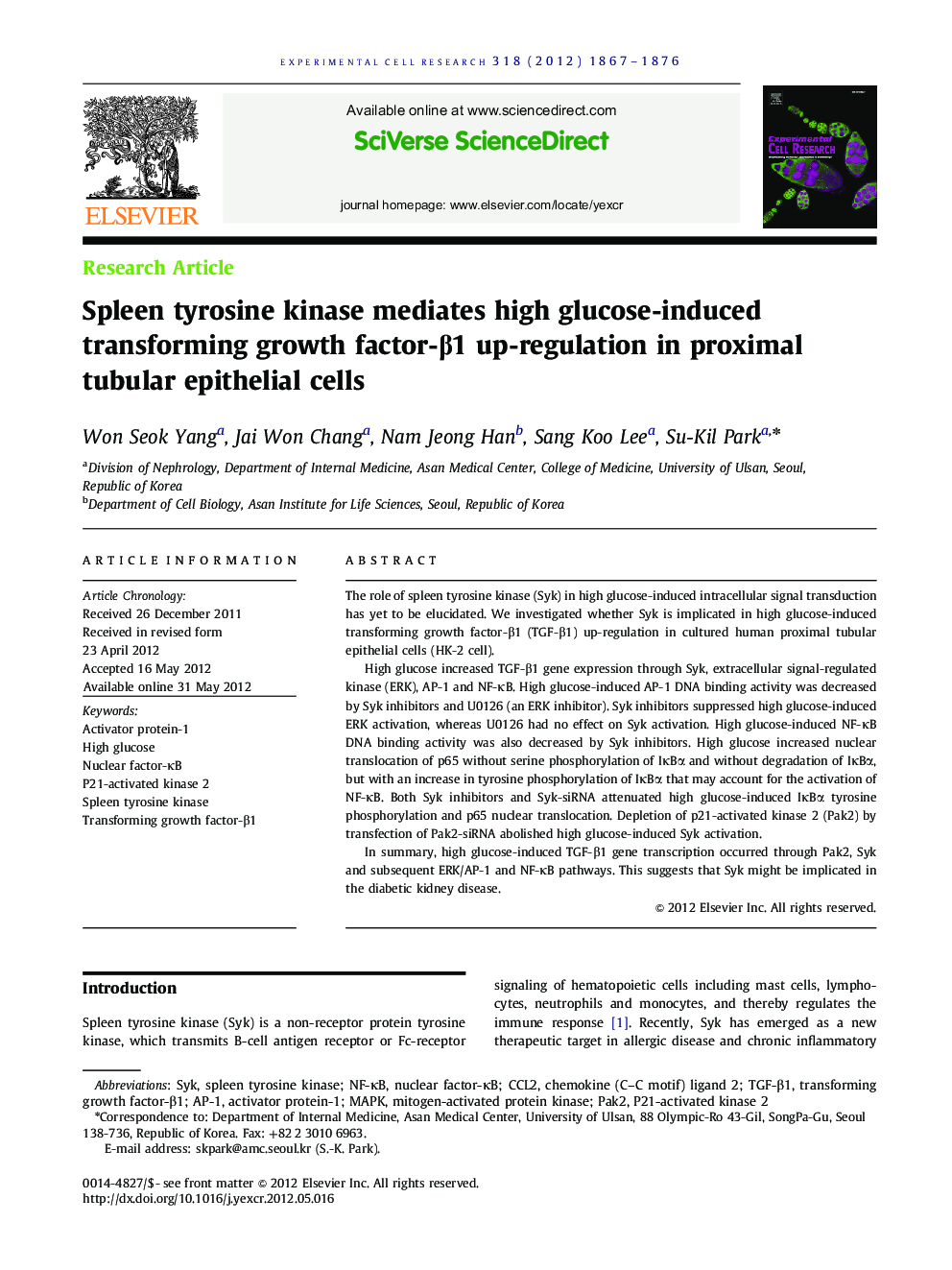| Article ID | Journal | Published Year | Pages | File Type |
|---|---|---|---|---|
| 2130529 | Experimental Cell Research | 2012 | 10 Pages |
The role of spleen tyrosine kinase (Syk) in high glucose-induced intracellular signal transduction has yet to be elucidated. We investigated whether Syk is implicated in high glucose-induced transforming growth factor-β1 (TGF-β1) up-regulation in cultured human proximal tubular epithelial cells (HK-2 cell).High glucose increased TGF-β1 gene expression through Syk, extracellular signal-regulated kinase (ERK), AP-1 and NF-κB. High glucose-induced AP-1 DNA binding activity was decreased by Syk inhibitors and U0126 (an ERK inhibitor). Syk inhibitors suppressed high glucose-induced ERK activation, whereas U0126 had no effect on Syk activation. High glucose-induced NF-κB DNA binding activity was also decreased by Syk inhibitors. High glucose increased nuclear translocation of p65 without serine phosphorylation of IκBα and without degradation of IκBα, but with an increase in tyrosine phosphorylation of IκBα that may account for the activation of NF-κB. Both Syk inhibitors and Syk-siRNA attenuated high glucose-induced IκBα tyrosine phosphorylation and p65 nuclear translocation. Depletion of p21-activated kinase 2 (Pak2) by transfection of Pak2-siRNA abolished high glucose-induced Syk activation.In summary, high glucose-induced TGF-β1 gene transcription occurred through Pak2, Syk and subsequent ERK/AP-1 and NF-κB pathways. This suggests that Syk might be implicated in the diabetic kidney disease.
